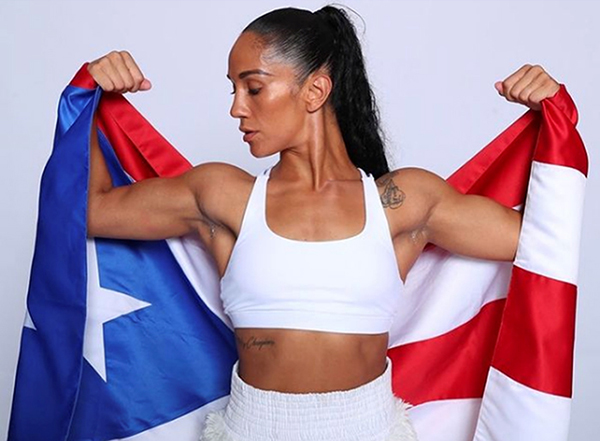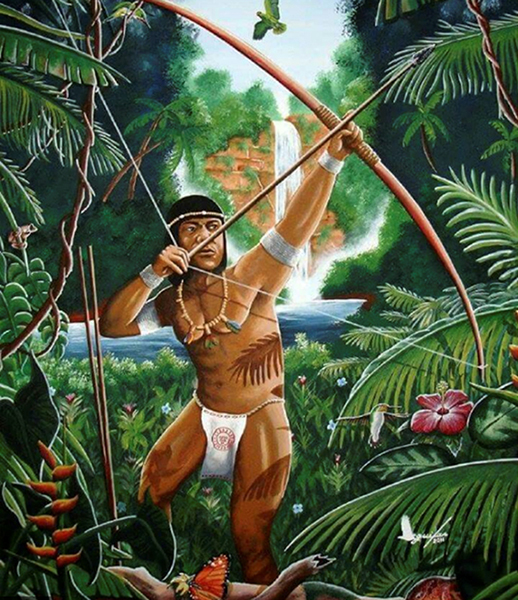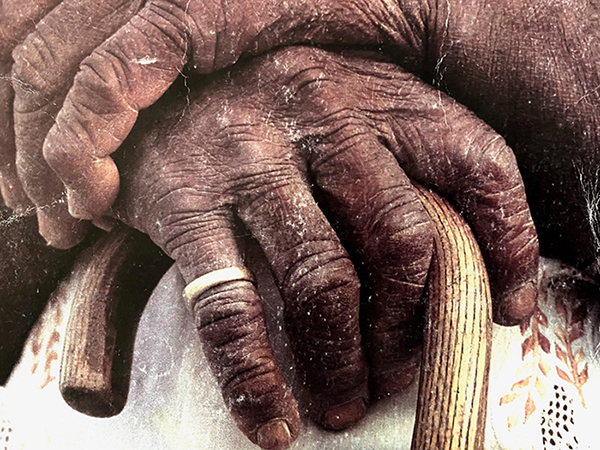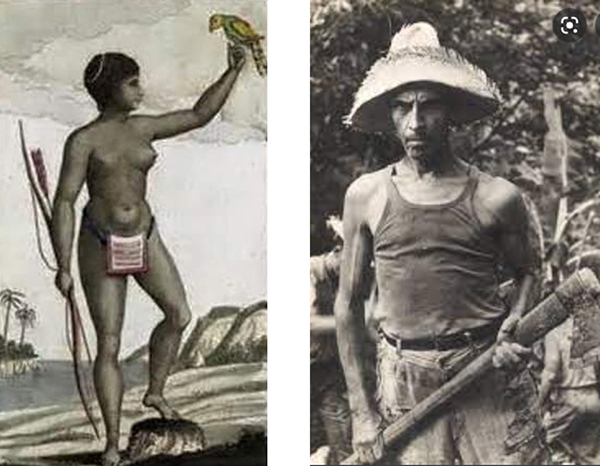Installment One
There are fewer than 9 million Puerto Ricans on the planet, born on the Island or in the States, a population about that of New Jersey’s. The country’s geography is tiny, some 100 miles long by 35 miles wide, comparable to Connecticut, the 48th state. Yet, the impact of Puerto Ricans on the world stage goes far beyond their numbers, and not just for their renown in sports, music, and beauty contests. At the core of their history is the fight for independence – personal and collective, alongside a commitment to solidarity with the just struggles of people everywhere.
Roots of a people in the fire of battle
Borikén, or Borinquen, was the name the First Nation Taíno people knew the Island by and gives us the term boricua, for “Puerto Rican.” The Spanish understood it to mean “land of the brave lord”—not knowing “lord” included some 15 women chieftains. The Taínos, men and women, were fighters, confronting the occasional raids of the neighboring Carib people and, later, allying with them to face Spanish invasion and exploitation.
With European colonization came African slavery and defiance – escape, subversion, and rebellion. Many fled to the refuge of the island’s highlands in the interior. Early on, the Taínos and escaped slaves were joined by other runaways: Spanish sailors and soldiers abandoning their posts, Africans freeing themselves from bondage in nearby islands, and others fleeing oppressive authority. They provided for themselves and bartered for other goods with foreign ships on the coast, far from the Spanish enclave of San Juan. The Puerto Rican working class has roots in these freedom-seeking, common folk of African, European, and First Nation blood making their own life free of colonial rule and exploitation.
For three centuries, largely left on their own by an imperial Spain focused on richer colonies and enduring plagues, natural disasters, and depopulation, they defended the Island when other imperialist powers attacked or invaded, turning back English, Dutch, and French assaults. Puerto Ricans began to see themselves as a people when they united from across the land in 1797 to repel the then mighty lords of capital, the English Empire. Maybe this early history of fierce independence and resistance, continuing to this day, is why the small island and its diaspora have produced so many boxing champions and proud athletes, like the mighty Amanda Serrano, seven division boxing champion, or the magnificent Olympic hurdler, Jasmine Camacho-Quinn, of African American and Puerto Rican heritage. But let’s dig a little deeper.
The Spaniards called the indigenous Taínos “buenos flecheros” (good with the bow and arrow) for their skill and, surely, their fighting spirit. The Africans brought to the Island as slaves and their Afro-Puerto Rican descendants fought for Borinquen, which had become their homeland. It was the “pardos y morenos” (mixed-race and black people) – making up a majority of the population – who responded when the British arrived on the 17th of April 1797 with a 68-ship armada and as many as 14,000 men. The Battle of San Juan was decided by the relentless fight of jíbaros (peasants) and townspeople rallying from across the island to join the people of San Juan in facing the would-be invaders.
Going east along that northeastern coast, communities long settled by free blacks (themselves escaped slaves from the nearby colonies of Spain’s rivals) met English forces reaching land. Over the course of two weeks of grueling fighting, the Puerto Rican people battled and put the mighty British to flight, at great sacrifice but in the end victorious. In essence, it was a confrontation between the criollo (local) ill-equipped, barefoot, laboring classes of pale-white, brown, and black complexion—townsfolk, militia, irregular forces, journeymen, jíbaros, fishermen – and the seat of worldwide capital, the British Empire. Spanish artillery played a part in the victory, but the bulk of the Spanish garrison was off fighting the revolting Haitian slaves in the neighboring island. The Puerto Rican criollos fought not for the Spanish crown, but for their land and themselves. Their fight also tied into a broader confrontation, as the British Empire was then at the forefront of capitalist expansion and imperialist conquest. Entrepreneur Britain was the greatest collector of colonies in the world and 1797 a precursor of the future linked struggles against colonial subjugation and capitalist exploitation.
In short, the Puerto Rican people have their formative roots in Spanish sailors and soldiers, runaway African slaves, and indigenous Taíno people who made their own life in the refuge of the mountainous interior, escaping Spanish oppression and control. The spirit of independence driving each of these free peoples only grew and became part of the DNA of their offspring, the Puerto Rican people. But by the time of the Battle of San Juan great changes were underway in the world and locally, forever disrupting the life forged over three centuries en la isla (in the interior).




